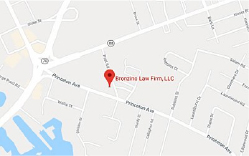

During the estate planning process, many people determine that a trust is the best way to protect their assets and appoint a trustee to oversee it. Being appointed trustee is an enormous responsibility. A trustee’s primary purpose is to carry out the terms of the trust and preserve the value of the trust’s assets. This may sound simple enough at first, but there are many legal intricacies to managing a trust that can make it much more complicated, particularly for those who have no experience with being a trustee. From understanding what to include in trust accountings to knowing what is required to close out a trust, trustees must fully understand their duties in order to avoid making costly mistakes, for they could be held liable.
New Jersey state law states that trustees are required to administer a trust with “undivided loyalty to and solely in the best interests of the beneficiaries.” This means that trustees cannot make decisions based on what may be beneficial for the trustees themselves or for any other people or entities connected to the trustee, including attorneys and accountants. What happens if a trustee is not certain if a transaction is in the best interest of the beneficiaries or when a transaction that is in the best interest of the beneficiaries may also benefit the trustee or others? Trustees can take steps to ensure that all trust transactions are rendered void of any conflict. One such step is to request court approval of the transaction before it is carried out. Another option is to explain the transaction to the beneficiaries and get their consent before moving forward.
Loyalty and ensuring that the beneficiaries’ best interests are met is a broad description of what a trustee is required to do when administering a trust. There are several specific duties a trustee may need to carry out, including notifying beneficiaries of the trust grantor’s death, arranging to have the trust’s assets appraised, and creating an inventory of the trust’s assets. A trustee is also responsible for transferring other property into the trust when needed, obtaining tax ID numbers, preparing and filing trust tax returns, distributing assets to the trust’s beneficiaries, and preparing trust accountings.
There are several things trustees cannot do. As previously discussed, trustees cannot make decisions regarding the trust based on how it may benefit them or others connected to them. However, this can be confusing, particularly when the trustee and the beneficiaries have a relationship with each other prior to the existence of the trust. Specific examples of what a trustee cannot do include entering into transactions with the trustee’s spouse or civil union partner or engaging in transactions with the trustee’s parents, parents’ descendants, or the spouses or civil union partners of the trustee’s parents. A trustee may also not participate in transactions with the trustee’s attorney’s accountants or with a corporation, person, or enterprise in which the trustee has an interest that might influence the trustee’s judgment. Due to the complicated laws of administering a trust, it is strongly recommended that trustees consider consulting with an experienced trust and estate attorney to ensure that they do not unintentionally take action in a way that is prohibited.
In addition to the duties already discussed, trustees may also need to complete tasks such as ensuring all trust assets are safe and under the control of the trustee when they accept the role. The trustee must also make appropriate investments for current and future beneficiaries as required by the trust terms and ensure that all past account records are in order. Additional tasks include making distributions to beneficiaries, carrying out actions according to the terms of the trust, and making appropriate tax decisions, including preparing records, statements, and returns and filing those documents as required by the trust or law. Finally, the trustee must communicate the trust’s current status to the trust’s beneficiaries and share reports and statements as needed. Some of these tasks may be easier than others, but even the simpler tasks may be overwhelming to someone who has never administered a trust before. Additionally, trustees are held to the highest ethical standards and held liable for their misconduct or mistakes, even if it was unintentional. Fortunately, New Jersey law does allow trustees to hire an attorney to assist them with ensuring that the trust is administered properly and to pay that attorney’s fees from the trust.
Trust accountings are an important part of the trustee’s duties. For the most basic accountings, a trustee will need a trust disbursement journal, a trust receipts journal, and a trust ledger book that holds the trust’s individual ledger accounts where the trustee records each financial transaction involving that client’s money. Beyond that, the trustee will also need to maintain the accounts daily and maintain a running balance for the trust’s checkbooks and ledgers. This includes keeping the appropriate documents for at least seven years. These documents include all source documents, including check stubs, deposit slips, bank statements, and canceled checks; records of the monthly reconciliations of the trust’s ledgers; retainer and fee agreements; any bills rendered to the trust; statements to beneficiaries showing disbursements from the trust; and records of payments to any attorneys or non-employees for services rendered.

While some trusts may stay in effect indefinitely, many are closed once the trust’s assets have been distributed to the beneficiaries. Just as there are requirements to create a trust, there are requirements to close it. Beneficiaries are required to file a release and refunding bond to close out the estate to ensure that any taxes required to be paid are paid, even if there are not enough assets in the trust to pay them. The bond provides the funds to pay those taxes. Trustees are not required to file such documents. Instead, if a trustee is prepared to close a trust, they must file a complaint with the Superior Court Chancery Division at least twenty days prior to the date the trustee intends to settle the trust. This complaint must also have an accounting for the trust, including any changes in assets or investments, allocation of expenses, the balance of the trust corpus, and calculation of the trustee’s requested commission. If the trustee has been discharged of this responsibility by the trust’s beneficiaries, they can file a written release from the beneficiaries instead of the accounting and complaint.
If you have been appointed as trustee over a trust and are uncertain of your duties and responsibilities, an experienced trust and estate attorney at Bronzino Law Firm can provide you with the guidance you need to ensure the trust is appropriately administered. Our wills and estate planning lawyers can also help you understand the potential mistakes you could make, your liability, and how to avoid those mistakes. If you have been appointed as trustee, or someone has asked you to be a trustee, and you are trying to decide whether to agree in Eatontown, Toms River, Jackson, Sea Bright, Point Pleasant, Beach Haven, Toms River, or anywhere else in Monmouth County, Ocean County and along the Jersey Shore, consider speaking with a trust and estate attorney before moving forward. Call our Brick or Sea Girt offices at (732) 812-3102, or look for us online for more information about how we can help you today in a free consultation to review of your case.
DISCLAIMER: The use of the Internet or this form for communication with the firm or any individual member of the firm does not establish an attorney-client relationship. Confidential or time-sensitive information should not be sent through this form.
“Mr. Bronzino is a very knowledgeable and efficient lawyer. He handled my divorce which was very involved due to problems concerning my ex husband. Mr. Bronzino explained very well all that was needed to be done all papers that needed to be filed. When a problem arose no matter what time of day or day of week it was Mr. Bronzino would answer my calls or emails asap and help me resolve the problem. He handled himself very well in court. I would recommend him to anyone who said to me they needed a lawyer. I truely trust him.”







Corner of Princeton and Post
44 Princeton Avenue
Brick, NJ 08724

Located in Brook 35 Plaza
2150 Highway 35, Suite 250
Sea Girt, NJ 08750
Allenwood, Bayville, Beachwood, Brick, Brielle, Howell, Island Heights, Lakewood, Lavallette, Manasquan, Mantoloking, Normandy Beach, Ocean Gate, Pine Beach, Point Pleasant Beach, Sea Girt, Seaside Heights, Seaside Park, Spring Lake, Toms River
Our goal as a law firm is to build personal and attentive relationships with our clients, providing informative legal guidance while remaining accessible and dedicated to each individual case. Whether we are handling a matter in Family Law, Divorce, Real Estate, Municipal Court we aim to lead in each practice and area of law we work in. For up-to-date information on our firm and legal news about the practice areas we cover, follow us on social media via the links below.
Copyright 2010 - 2024 Bronzino Law Firm, LLC Disclaimer Sitemap